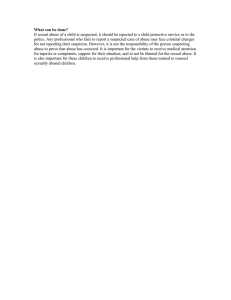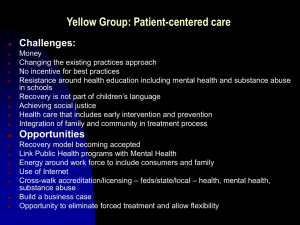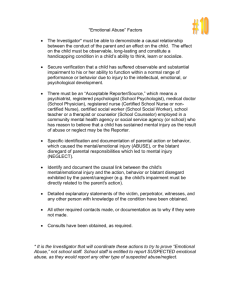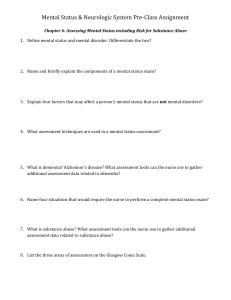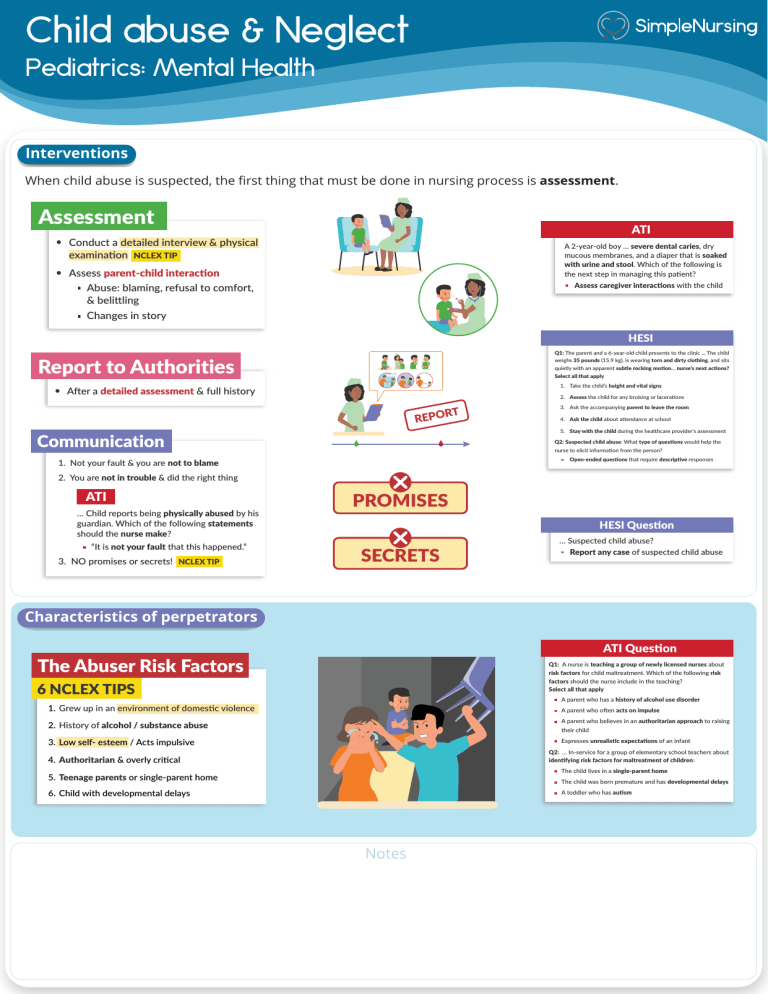
Child abuse & Neglect Pediatrics: Mental Health Interventions When child abuse is suspected, the first thing that must be done in nursing process is assessment. Assessment ATI Conduct a detailed interview & physical examination NCLEX TIP A 2-year-old boy … severe dental caries, dry mucous membranes, and a diaper that is soaked with urine and stool. Which of the following is the next step in managing this patient? Assess parent-child interaction Abuse: blaming, refusal to comfort, & belittling Assess caregiver interactions with the child Changes in story HESI Report to Authorities Q1: The parent and a 6-year-old child presents to the clinic ... The child weighs 35 pounds (15.9 kg), is wearing torn and dirty clothing, and sits quietly with an apparent subtle rocking motion... nurse’s next actions? Select all that apply It’s totally your fault! 1. Take the child’s height and vital signs After a detailed assessment & full history 2. Assess the child for any bruising or lacerations RT REPO 3. Ask the accompanying parent to leave the room 4. Ask the child about attendance at school 5. Stay with the child during the healthcare provider’s assessment Communication Q2: Suspected child abuse: What type of questions would help the nurse to elicit information from the person? Open-ended questions that require descriptive responses 1. Not your fault & you are not to blame 2. You are not in trouble & did the right thing ATI … Child reports being physically abused by his guardian. Which of the following statements should the nurse make? “It is not your fault that this happened.” 3. NO promises or secrets! NCLEX TIP PROMISES HESI Question SECRETS … Suspected child abuse? Report any case of suspected child abuse Characteristics of perpetrators ATI Question The Abuser Risk Factors Q1: A nurse is teaching a group of newly licensed nurses about risk factors for child maltreatment. Which of the following risk factors should the nurse include in the teaching? Select all that apply 6 NCLEX TIPS A parent who has a history of alcohol use disorder 1. Grew up in an environment of domestic violence A parent who often acts on impulse A parent who believes in an authoritarian approach to raising 2. History of alcohol / substance abuse their child 3. Low self- esteem / Acts impulsive Expresses unrealistic expectations of an infant Q2: … In-service for a group of elementary school teachers about identifying risk factors for maltreatment of children: 4. Authoritarian & overly critical The child lives in a single-parent home 5. Teenage parents or single-parent home The child was born premature and has developmental delays 6. Child with developmental delays A toddler who has autism Notes
